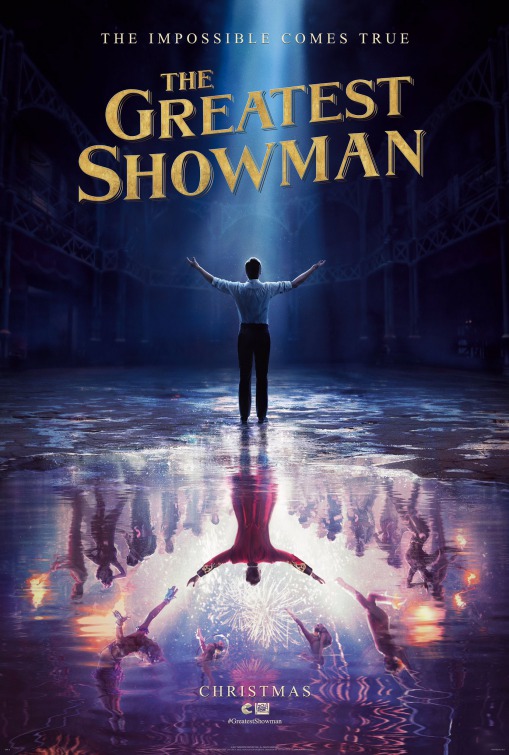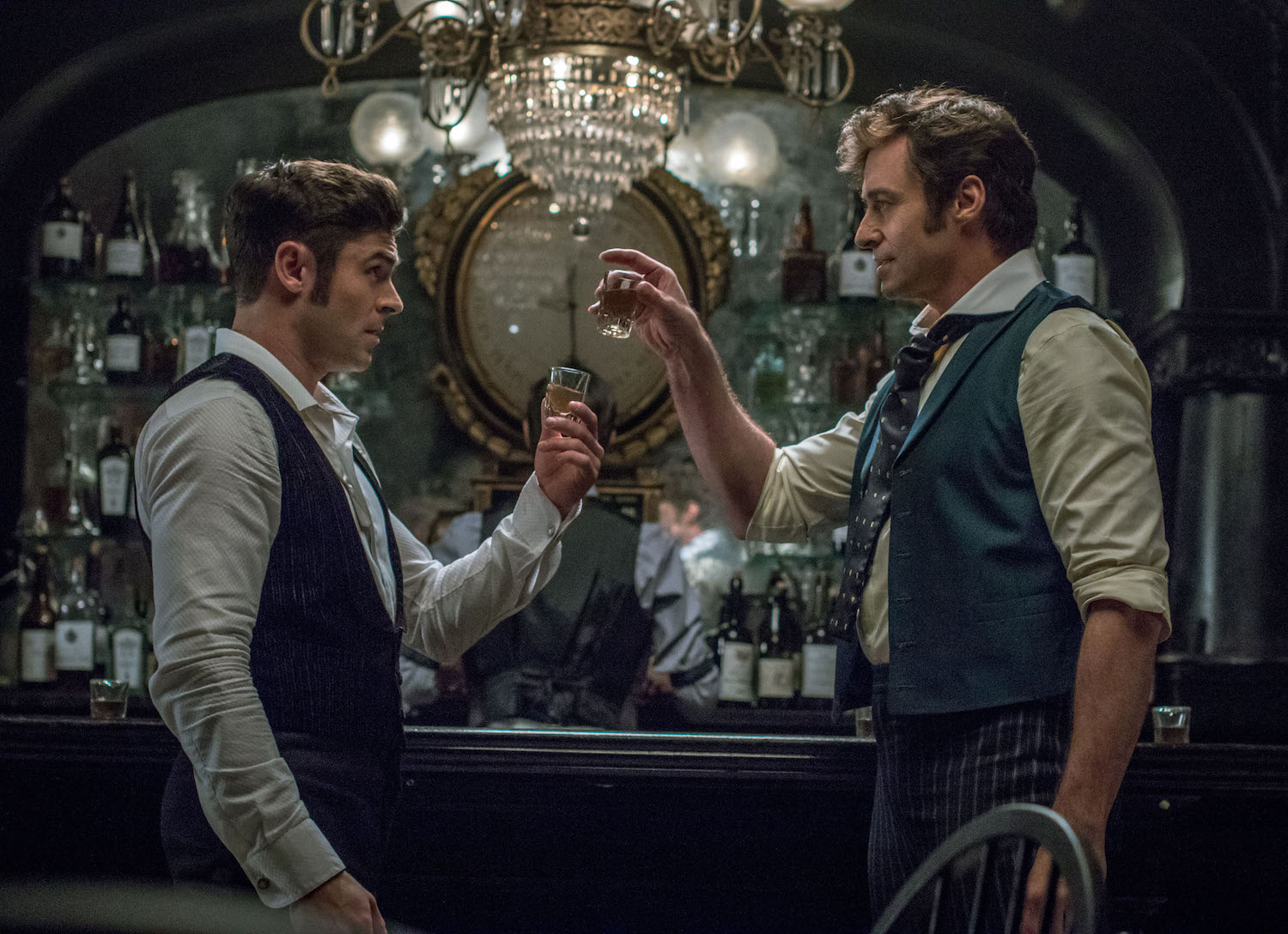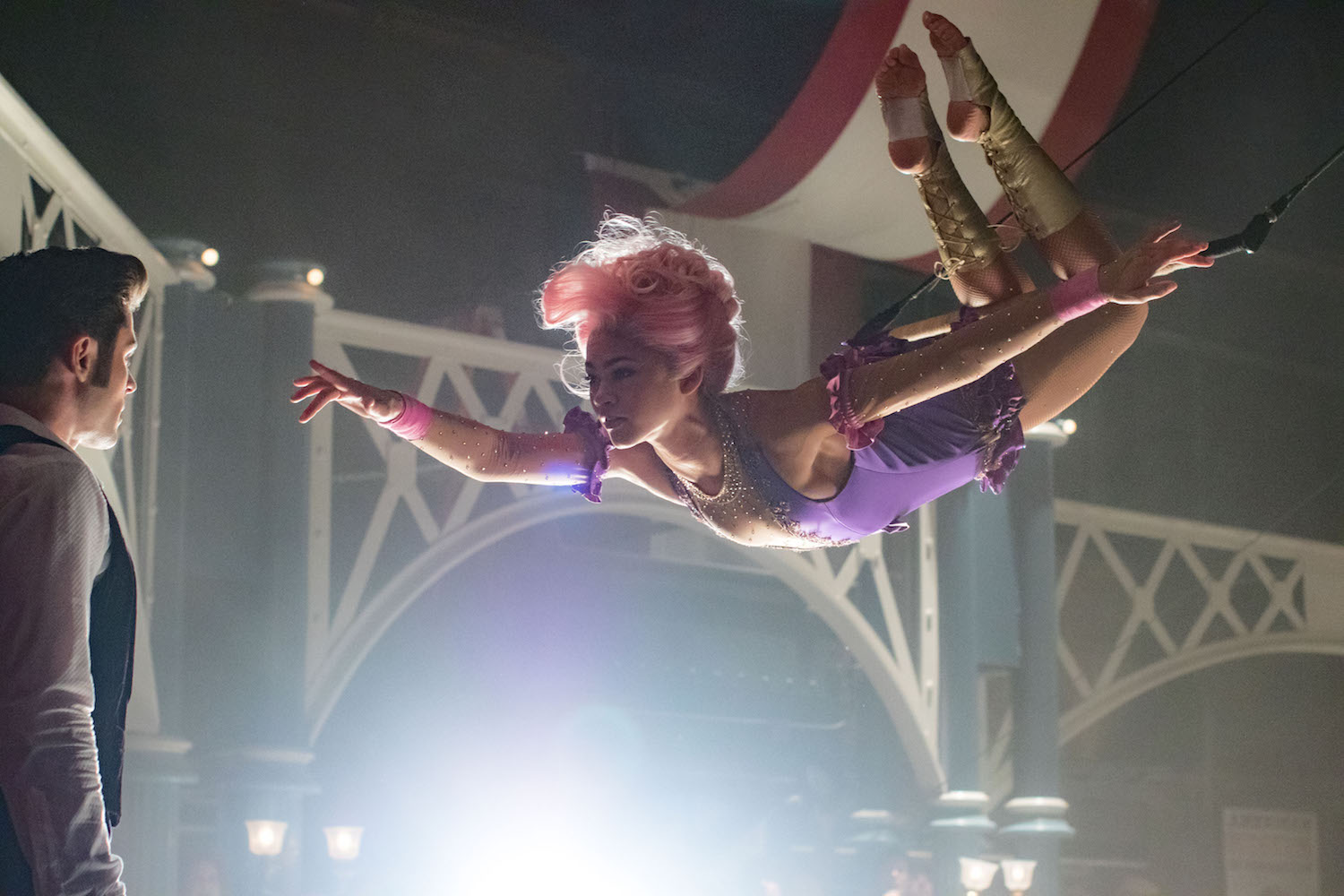Film Review: “The Greatest Showman” Is All Show, Little Substance
Written by: Christopher Llewellyn Reed | December 20th, 2017

The Greatest Showman (Michael Gracey, 2017) 2 out of 4 stars.
What to make of The Greatest Showman, an original musical – written for the screen, not stage – starring Hugh Jackman (Logan) as 19th-century circus impresario P.T. Barnum? Filled with toe-tapping tunes, written and performed with, and for, 21st-century aesthetic sensibilities, it moves along at such a brisk pace that the details of the lead character’s life are reduced to their most superficial expression. But hey, Jackman and his cohorts sure can sing and dance, so there’s plenty to distract from the crazy script. Think of it as a knockoff of Baz Luhrmann’s turn-of-the-millennium Moulin Rouge! and you’ll get the idea.
Dubbed the “Prince of Humbug” (as we learn here), Barnum rose from nothing to become a master of spectacle, starting with freak shows and rising to circuses and other, even more respectable, acts. In an opening musical montage (my favorite sequence of the film), we watch as young Barnum leaves the estate where his father worked as a tailor, goes out into the world, grows into Jackman, struggles to make a living, and eventually returns to marry his childhood sweetheart, now grown into Michelle Williams (Take This Waltz). It’s a wonderful example of music working in perfect accompaniment to the story, something not always seen afterwards. Also, did I mention that Jackman can really sing and dance?

Soon, unhappy with his lot as a clerk (and out of a job, anyway, once the firm he works for goes belly up), Barnum takes out a bank loan and, with the help of his wife and two daughters, gathers around him a troupe of human oddballs (a bearded lady, a little person, trapeze artists, etc.), to mount a museum of curiosities that, when it fails, leads him to create a theatrical extravaganza that succeeds. With much fabulist bluster (not everything he presents may be real), he soon makes enough money to set society folks in his sights. Enter Zac Efron (Neighbors) – who can also sing and dance – as a wealthy heir looking for a thrill, and presto, Barnum can move up even more. But how high will he fly before he comes crashing down? For the answer to that, you’ll have to buy your own ticket. Step right up, folks!
It’s both a lot of fun, and incredibly silly, though a very strange project to have been conceived as a movie, first, rather than as a stage musical, where the story lapses might be less bothersome, since they’re part of that genre. Still, there are great performances here, including one from Keala Settle (Ricki and the Flash), as the bearded lady, who has a beautiful voice and presence, though one wishes her beard looked more believable in close-up. Others that shine are Zendaya (Spider-Man: Homecoming), as one of the trapeze artists; Rebecca Ferguson (The Snowman), as an opera singer (singing what sound like pop songs from our own, modern-day world) in whom Barnum invests both hope and heart; and Williams, always good, even here in what could have been a thankless role as long-suffering wife and helpmate.

Anachronistic as all get-out, though often in the overt cause of racial justice and equality, the movie strains narrative credulity at every turn. While breaking all sorts of historical rules, one cannot but also wish that the filmmakers looked beyond the celebration of Barnum’s accumulation of wealth to something more profound. As presented here, Barnum just wanted to stick it to the rich folk who made him feel small as a child by becoming one, himself. Yes, he is a champion of the disenfranchised, but his charity only goes so far. Actually, put that way, perhaps Barnum is the perfect figurehead for our current time: an entertaining blowhard who promises much and delivers baubles, instead. Would that this movie had that level of self-awareness, as it could then live up to its title and be great. Instead, it’s all show.

